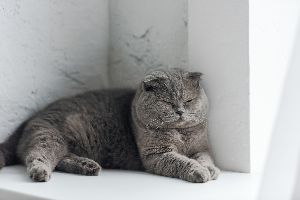
Cats are notorious for hiding signs of discomfort and illness, which can make it challenging to discern when your feline friends might need veterinary care. Fortunately, when you know how to identify subtle signs of pain and discomfort, you can help them get the right treatment to stay healthy and happy. Here's how to tell when your cat might need to see a veterinarian.
How to Tell if Your Feline Friend Is in Pain
1. Excessive Meowing
Cats may meow for several reasons, such as soliciting attention or asking for food; however, meowing more frequently may result from medical conditions causing them to feel unusually hungry, irritable, or restless. A veterinary care provider can perform tests to check for conditions that often cause excessive meowing, such as overactive thyroid and kidney disease. If necessary, they may prescribe medication to reduce any discomfort.
2. Lethargy & Fatigue

Cats sleep between 12 and 16 hours per day, allowing them to conserve the energy used while running, jumping, and playing with toys. However, if your feline friend seems more lethargic and fatigued than usual, this may stem from a minor cat bite abscess or a more serious illness, like kidney disease or diabetes. A veterinarian will perform a physical exam or take blood samples to diagnose the issue.
3. Changes in Gait
If your cat resists putting all their weight on a particular paw, this may indicate the onset of arthritis or degenerative joint disease. Your feline friend might also limp or become more sedentary because of joint discomfort. A veterinarian can take X-rays to assess the condition of your cat's joints and bones. They may also recommend dietary supplements and prescribe anti-inflammatory drugs to reduce pain.
4. Over-Grooming
If your cat grooms excessively and bites or scratches at their skin, they may have a flea or food allergy. Without treatment, this can lead to secondary bacterial infections caused by harmful microbes that enter broken skin.
A veterinary care provider can check your cat for fleas and provide treatment to stop over-grooming, scratching, and biting. Alternatively, they may perform an allergy test and recommend changing your cat's diet to remove allergy triggers that might cause itching.
When your cat shows signs of pain or discomfort, contact Appalachian Animal Hospital. This animal hospital provides pet health exams, surgery, and emergency procedures to felines throughout Morristown, TN. Call (423) 587-4393 to book an appointment for veterinary care and visit the website to find out how they can keep your furry friends healthy and happy.
About the Business
(21 reviews)
Have a question? Ask the experts!
Send your question

